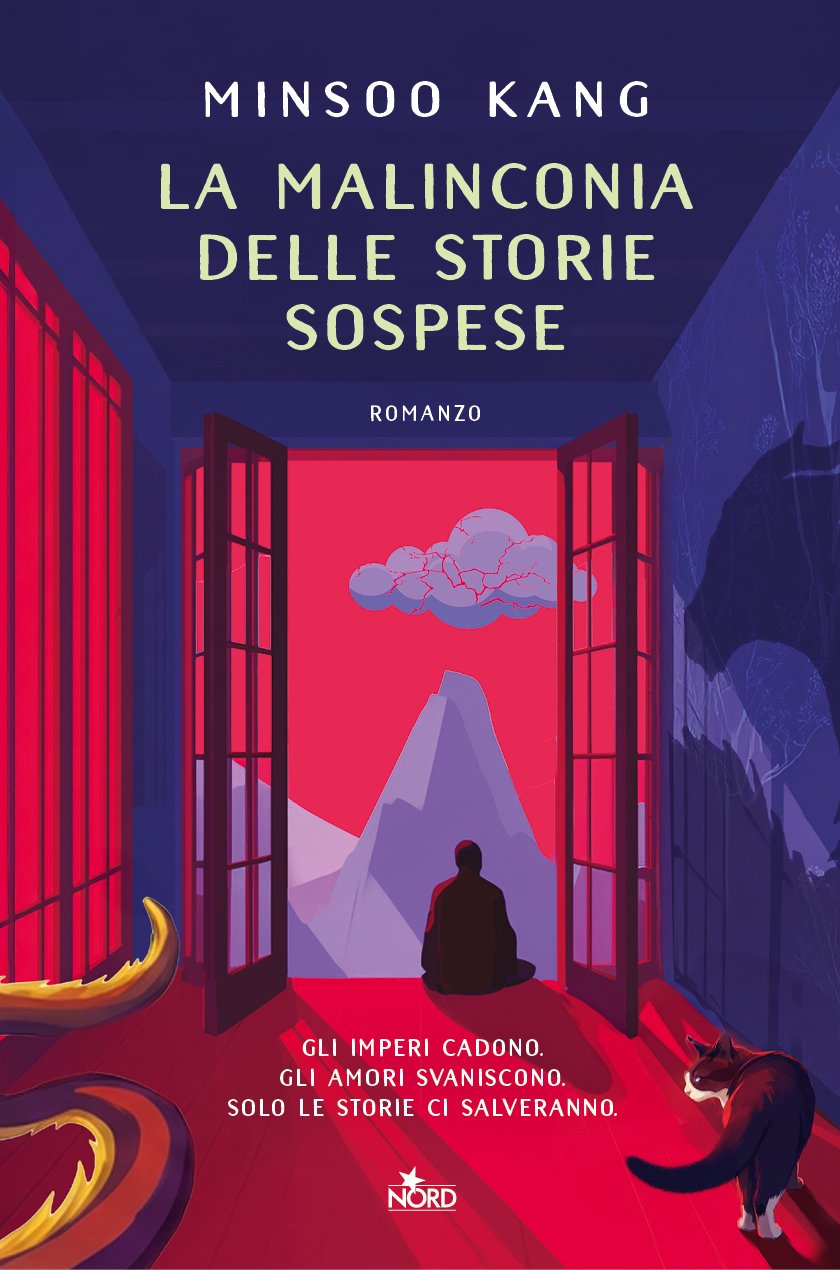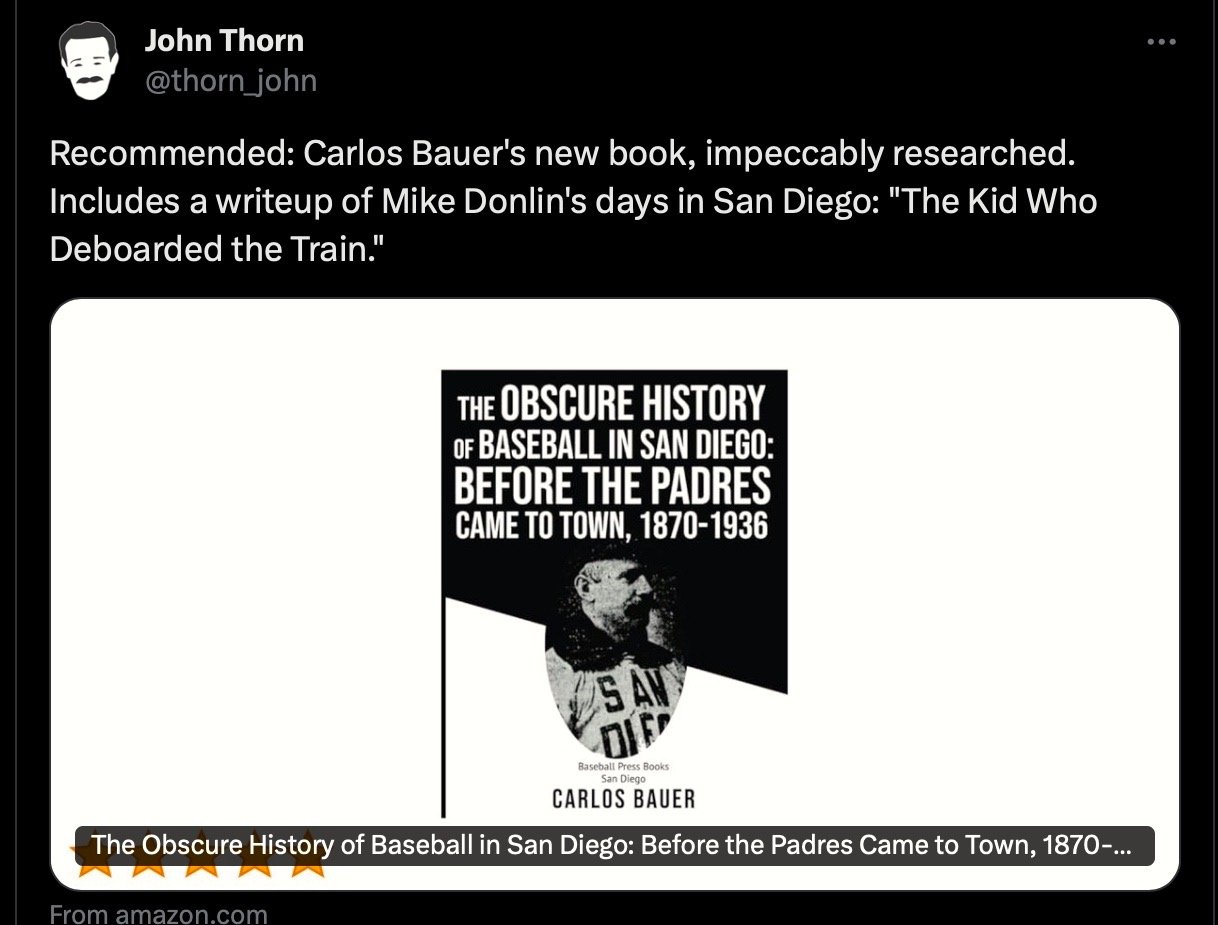Bellissimo!
A new piece by Evelyn Maguire about the sense of place.
From The Common:
“Some things we understand before we’ve ever touched them. I swallowed a poppyseed and saw you in my dreams. Summer sweltered. Sweat marked round my ribs, beating with two hearts. Boiled eggs, sharp chives, mayo, cayenne, dill, salt. Summer of salt: we retreat to the seaside of my childhood, rocky and full of my mother’s egg salad.”
Click the link to read the entire essay.
Cape May, midsummer
Chris Amenta's powerful, honest assesment in the aftermath of the Brown University shootings
From the Boston Globe, December 24th, 2025:
Theatrics instead of truth: Are we really doing anything to stop mass shootings?
In the aftermath of the Brown mass shooting, a Providence parent considers “our country’s hard truths and the things worth saving”
Read the entire story RIGHT HERE
Minsoo Kang's The Melancholy of Untold History wins the Mythopoeic Fantasy Award for Adult Literature!
You can read all about the Mythopoeic Society and the award here. Well-deserved recognition for one of 2024’s most decorated science fiction and fantasy novels. Congratulations, Minsoo!
Minsoo Kang's The Melancholy of Untold History named as a finalist for the Mythopoeic Fantasy Award for Adult Literature
The Mythopoeic Society has announced the finalists for the 2025 Mythopoeic Awards. For more information about the awards, visit the Awards section of this site; the finalists for the literature and scholarship awards and text of recent acceptance speeches are also listed in this section. The winners of this year’s awards will be announced at our Online Midsummer Seminar 2025, “More Perilous and Fair: Women and Gender in Mythopoeic Fantasy,” which runs August 2-3, 2025, on Zoom and Discord.
Mythopoeic Fantasy Award for Adult Literature
Katherine Arden, The Warm Hands of Ghosts (Del Rey, 2024)
Yangsze Choo, The Fox Wife (Henry Holt & Co., 2024)
Minsoo Kang, The Melancholy of Untold History (William Morrow, 2024)
Deborah K. Vleck, The Society of Guenevere (FTL Publications, 2024)
Nghi Vo, The City in Glass (Tordotcom, 2024)
Minsoo Kang continues to surprise the world!
History.com asked 25 historians to provide a lesser-known fact that may or may not have changed the world. Minsoo’s contribution is below; read the entire post here.
Official Major League Baseball History John Thorn give Carlos Bauer's new work 5 Stars
Congratulations, Carlos!
The Melancholy of Untold History Named Best Science Fiction and Fantasy of 2024
The Brattle Agency couldn’t be more delighted to announce that Minsoo Kang’s debut novel, The Melancholy of Untold History, was named one of the ten best SFF novels of 2024 by Amal El-Mohtar in the New York Times.
A brilliant and thorough discussion of Joan Chase's During the Reign of the Queen of Persia
The Brattle Agency is a little late in discovering this discussion (we don’t know how we missed it), but the smart readers over at One Bright Book did an episode on Joan Chase and her masterpiece novel. Check it out! You can listen to the entire discussion right here.
Minsoo Kang's The Melancholy of Untold History is reviewed in the New York Times
You can read the whole review right here!
“The result is delightful and spellbinding. In the face of well-worn advice that writers should show, not tell, it’s wonderful to be reminded that we call it storytelling, not storyshowing. “The Melancholy of Untold History,” title notwithstanding, is a book that is thoroughly told from beginning to end…I can’t remember the last time a book made me laugh so immediately after making me cry.” - Amal El-Mohtar, co-author of This Is How You Lose the Time War
Starred Booklist review of Minsoo Kang's The Melancholy of Untold History audiobook
*The Melancholy of Untold History.
By Minsoo Kang. Read by Keong Sim
2024. 8hr. HarperAudio, DD (9780063337534).
Writer/professor Kang's debut novel is a stupendous feat of erudite imagination and a convincing treatise on the timeless cultural value of storytelling. Korean American actor Sim is an optimal cipher—patient, inviting, revealing. Kang presents a tri-fold puzzle with intriguing pieces that could stand alone, but bound together make a radiant whole. He opens with an ancient storyteller whose fabled prowess grabs the emperor's attention, only to be brutally punished for his unparalleled skills. Thousands of years later, stories become history and the contemporary historian lectures to his undergraduates. His own narrative leans toward tragedy: his storied career—elevated for debunking centuries-old history—means little after he loses his beloved wife. His loneliness is briefly alleviated by a surprisingly comforting affair with his former student-now-colleague, but he remains trapped in his overwhelming grief. Meanwhile, the storyteller's myths begin, introducing the "magnificent mountain known as Four Verdant Mothers," where four powerful deities (two gods, two goddesses) are about to destroy their friendship, not to mention global peace, over a single perfect peach. Humanity suffers—in between thriving, warring, recovering, reinventing. Amidst that "melancholy of history," marred by "futile ambitions and unending violence," survive life-giving, life-saving stories, even as gods, royalty, leaders, soldiers, and common people forever fade. Remarkable are the promises of new starts, new endings, and new adventures. Sim delivers an utterly exquisite performance.
— Terry Hong
Minsoo Kang in the Los Angeles Review of Books on the film Exhuma
“[Exhuma] features a version of the slick, fast-paced, genre-mixing style that has defined many of the most internationally successful South Korean movies, including speculative works like Bong Joon-ho’s Snowpiercer (2013) and Yeon Sang-ho’s Train to Busan (2016). Yet it is also replete with elements specific to Korean culture and historical memory to the extent that much of the narrative will likely be opaque to non-Korean viewers. These elements include the persistence of traditional forms of magic in Korean society and the historical trauma of the Japanese colonization of the Korean peninsula (1910–45). They also include a particular myth concerning the Japanese attempt to destroy Korea through geomancy—a myth that I was in part responsible for spreading in the late 1990s.”
Read the entire piece at the LARB website here.
Here's Minsoo Kang's entire conversation with Ed Lin at the Korea Society
You can listen to his whole presentation by clicking here. Minsoo was at the Korea Society in New York City on Wednesday, July 24, 2024. His debut novel The Melancholy of Untold History is on sale now at bookstores everywhere.
A slew of great reviews for Minsoo Kang's debut novel
PASTE MAGAZINE:
“A storyteller faces certain death. A historian falls into a deep depression after the loss of a loved one. And four gods play out a conflict in life after life, regardless of the number of years they spend in their war. These tales blend together, weaving in and out of each other in a dance of myth, history, and personal narrative, in Minsoo Kang’s powerful debut novel, The Melancholy of Untold History…Untold history may be melancholy, but it’s in the process of living that history can be transformed, that stories can be understood, and that justice can, at last, be found.”
LOCUS MAGAZINE:
“An energetic and ambitious epic... Kang seems determined to show us that Story is as much a web as a cauldron, connecting the most ancient myths and the most contemporary anxieties, with what we think of as history as a kind of mediator. Since it's almost impossible to read The Melancholy of Untold History without coming away haunted by these questions, he's succeeded brilliantly, and given us one of the more inventive and intellectually provocative fantasies of the year.”
LIGHTSPEED MAGAZINE:
“The Melancholy of Untold Historyis often funny with dark humor, sarcastic storytellers, and petulant gods. It could even be considered a fun read if it weren't for the genocide, death, and loss of a national idea and history. Instead, Kang creates an intriguing book that challenges the notion of history... [S]tories are meticulously stacked, wrapped, and unraveled, creating a complex yet coherent narrative where tales nest within each other... Kang seamlessly time-hops across millennia without ever losing the thread or emotional intensity of the story... Finishing the novel offers that satisfying sense of pieces falling into place.”
BOOKLIST:
“This deeply introspective debut from University of Missouri history professor Kang not only tugs at heartstrings but also pulls on the mind's capacity to understand grief in hopes of savoring life's brief but beautiful moments... This layering of stories explores the connections between fiction, history, myth, and narrative, highlighting how human imagination can, for better or worse, supplement gaps in historical archives. Kang's unique storytelling form also shines through his archiving of fictional secondary sources with footnotes and academic citations and his precise and meditative dialogue, making his novel especially suitable for readers interested in piecing together the kind of narrative puzzles that push fiction's boundaries.”
Minsoo Kang in conversation with Ed Lin at the Korea Society on Wed, July 24, 2024
Minsoo Kang's debut "one of the most anticipated books of the summer" says Bustle Magazine
From Bustle Magazine:
“With his quietly magical debut, Kang delivers a book that only a history professor such as himself could write. The novel switches between a profoundly personal story of loss and a grand, mythic epic, poking at the varied ethics and aims of historicism as it goes.”
A Warm Welcome to Evelyn Maguire to the Brattle Agency family!
We are delighted to introduce our newest client, Evelyn Maguire. Ms. Maguire is a writer living in Boston, MA. She earned her MFA at the University of Massachusetts Amherst, where she received the James W. Foley Memorial Prize. Her fiction has been published by Salamander, North American Review, and North Dakota Quarterly, among others. She is the Founding Editor of the literary magazine Overheard.
Her debut novel is soon out for submission or feel free to contact the agency to learn about her incredible manuscript.
Some bad book news from Costco
As per today’s Publishers Lunch:
Costco to Stop Carrying Books Year Round
Costco recently informed publishers that it will stop carrying books on a year-round basis in its stores. This comes after they stopped carrying books in Hawaii and Alaska as of late 2022, and after their renowned book buyer Pennie Clark Ianniciello left company in 2021.
The NYT reports based on conversations with publishers, "Beginning in January 2025, the company will stop stocking books regularly, and will instead sell them only during the holiday shopping period, from September through December. During the rest of the year, some books may be sold at Costco stores from time to time, but not in a consistent manner, according to the executives, who spoke anonymously in order to discuss a confidential business matter that has not yet been publicly announced."
Luke Salisbury with a brilliant letter to the New York Times
Baseball on the Clock
To the Editor:
“Baseball Has Lost Its Poetry,” by Jesse Nathan (Opinion guest essay, Oct. 21), is an excellent piece of baseball writing. Baseball, however, is not played on the page. It’s played on the field.
Mr. Nathan could not be more wrong about the pitch clock, which he opposes.
As an author of baseball books, articles, essays, reviews and short stories, I have an appreciation for good writing, and include Mr. Nathan’s piece in this category. As a fan since 1957, an attendee at 50 opening days at Fenway Park and an inveterate TV watcher, I love the game.
Starting about 10 years ago, the game became unwatchable. Each batter had his ritual of stepping out of the batter’s box, adjusting batting gloves, touching body parts, to reset focus and interrupt the pitcher’s rhythm. This happened on virtually every pitch.
Pitchers, for their part, could hold the ball, throw to first with a man on base unlimited times, stare, even walk behind the mound, to reset and interrupt the batter’s timing. This could happen on every pitch. It was not a timeless escape from modern life. It was not poetry. It was a waste of time.
If Mr. Nathan desires the timeless, I suggest Shakespeare’s sonnets.
Luke Salisbury
Chelsea, Mass.
The writer is the author of “The Answer Is Baseball.”
Minsoo Kang in The New York Times
Novelist Han Kang published a piece in the New York Times on Wednesday, September 6th titled “Read Your Way Through Korea” that mentions Minsoo Kang’s excellent translation of The Story of Hong Gildong. Read the entire piece HERE. Check out The Story of Hong Gildong HERE.
Congratulations, Minsoo! That’s some excellent company you’re keeping!













